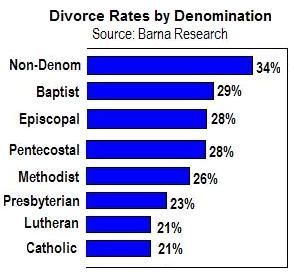Dearly beloved, Paul writes earlier – a greeting of agape love NOT inappropriate for a marriage, but the Apostle’s intent in this section addresses spiritual gifts and love of the CHURCH specifically.
we have the mind of Christ.
1 Corinthians 2:16 KJV
ἔχω – echō
- to have, i.e. to hold
- to have i.e. own, possess
So think of it this way:
WE (referring to the Church) hold the mind of Christ. And WE possess the mind of Christ as HIS body, the Church.
AND, of course, don't miss this application to our vows of Christian marriage as well, (not to mention our relationship to a dearly beloved local church family).
Do our marriage vows model a Common Era witness of christianity to an uncommitted world?

to HAVE and to HOLD
used of those joined to any one by the bonds of natural blood or marriage or friendship or duty or law etc., of attendance or companionship
Dearly beloved,
Do you take this bond of your church (etc.) to:
have and to hold?
OR do WE just want to try out relationships of LOVE and church es — NOT having or holding any commitment to Christ Jesus and His body the Church?
But because of sexual immoralities, each man is to have G2192 his own wife, and each woman is to have G2192 her own husband.
Paul has already pointed the Corinthians to a higher standard.
Yet HERE the Apostle continues to apply this love to the body of the CHURCH.
So what is this agape LOVE?
The Lord Jesus had warned those who would follow:
And because iniquity shall abound, the love G26 of many shall wax cold.
Matthew 24:12 KJV
The Apostle had opened this section by listing what agape LOVE is NOT.
Love’s clear contrasts in the love of believers
Paul now proceeds to list a few of the insufficient adjectives which describe the love of God in Christ Jesus - both what LOVE is and what agape LOVE is NOT.
Love Charity
◄ 1 Corinthians 13:4 ►
- is patient
- long-spirited
- forbearing
- suffereth long
- is long-suffering,
- is kind
- gentle
- gracious
- benevolent
- desires to do good to others
- does not envy
- zeloi or jealousy
- burn with zeal
- 1 Cor 3:3
- does not boast
- brag
- vaunt itself
- employ rhetorical embellishments in extolling one’s self excessively
- is not proud.
- puffed up
- inflated with self-importance.
- arrogant
- 1 Corinthians 5:2
- Doth not behave itself unseemly
- behave rudely
- act unbecomingly
- dishonor others
- is not disrespectful
- or inconsiderate.
- It is not self-seeking
- seeketh not her own
- himself, herself, itself, themselves
- is not easily provoked
- irritable
- resentful
- angered
- gets annoyed
- aroused to anger
- thinketh no evil
- does not keep an account of a wrong suffered
- no record of being wronged
- love that forgives and forgets
it does not rejoice at wrongdoing,
but rejoices with the truth.
1 Corinthians 13:6 ESV
- ἀδικία – wrongdoing
- injustice, of a judge
- unrighteousness of heart and life
- a deed violating law and justice, act of unrighteousness
The Greek word for “truth” is “aletheia,” which signifies not only factual accuracy but also sincerity and integrity.
In the biblical narrative, truth is often associated with God’s character and His revelation to humanity.
Agape rejoices with the truth;
It bears all things, believes all things, hopes all things, endures all things.
- It always protects,
- always trusts,
- always hopes,
- always perseveres.
- Love never gives up,
- never loses faith,
- is always hopeful,
- and endures through every circumstance.
ἀγάπη agapē never fails,
1 Corinthians 13:8a
And again, the Apostle's list and concern is for spiritual gifts.
BUT..
Paul continues,
- As for prophecies,
- they will pass away;
- as for tongues,
- they will cease;
- as for knowledge,
- it will pass away.
- 9 For we know in part
- and we prophesy in part,
- 10 but when the perfect comes,
- the partial will pass away.
1 Corinthians 13:8b-10 ESV
And let's not forget, the Apostle's instruction to the Corinthians is to contrast these to our agape love in Christ as His body the Church.
Now Paul, their teacher for a year and a half concludes his settling of their differences by essentially telling the Corinthian saints to:
Grow up!
When I was a child, I spoke as a child, I understood as a child, I thought as a child;
but
when I became a man, I put away childish things.
Have YOU, dearly beloved, 21st century saint?
For now we see in a mirror, dimly, but then face to face.
Now I know in part,
but then I shall know just as I also am known.
1 Corinthians 13:12 NKJV
TalkofJesus.com post [2 min.] from September 11, 2013
and now abide
νυνὶ δὲ μένει
menō – not to depart
- to continue to be present
- to be held, kept, continually
to remain as one, not to become another or different
These are just a few of the meanings when the Apostle pleas with his beloved church to have and to hold Christ -- the love of God for saints chosen to abide in the love of the Lord.
What Paul writes here sounds like a benediction — a closing thought. But is not since the Apostle has more to say about spiritual gifts.
And now abide faith, hope, love, these three; but the greatest of these is love [ἀγάπη agapē].
1 Corinthians 13:13 NKJV
NEXT: (with an interruption for Lent 2025 CE) in chapter 14 the Apostle Paul will conclude this section of his epistle on order in worship and spiritual gifts.
Comment on Scripture – Share the Gospel



